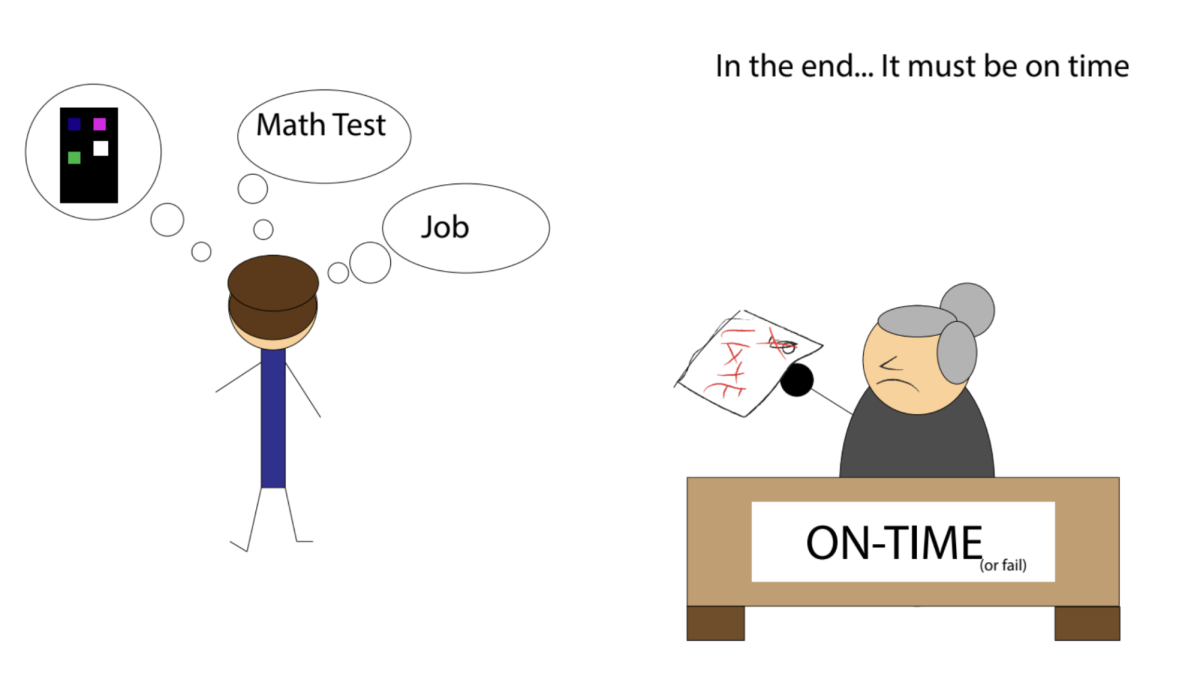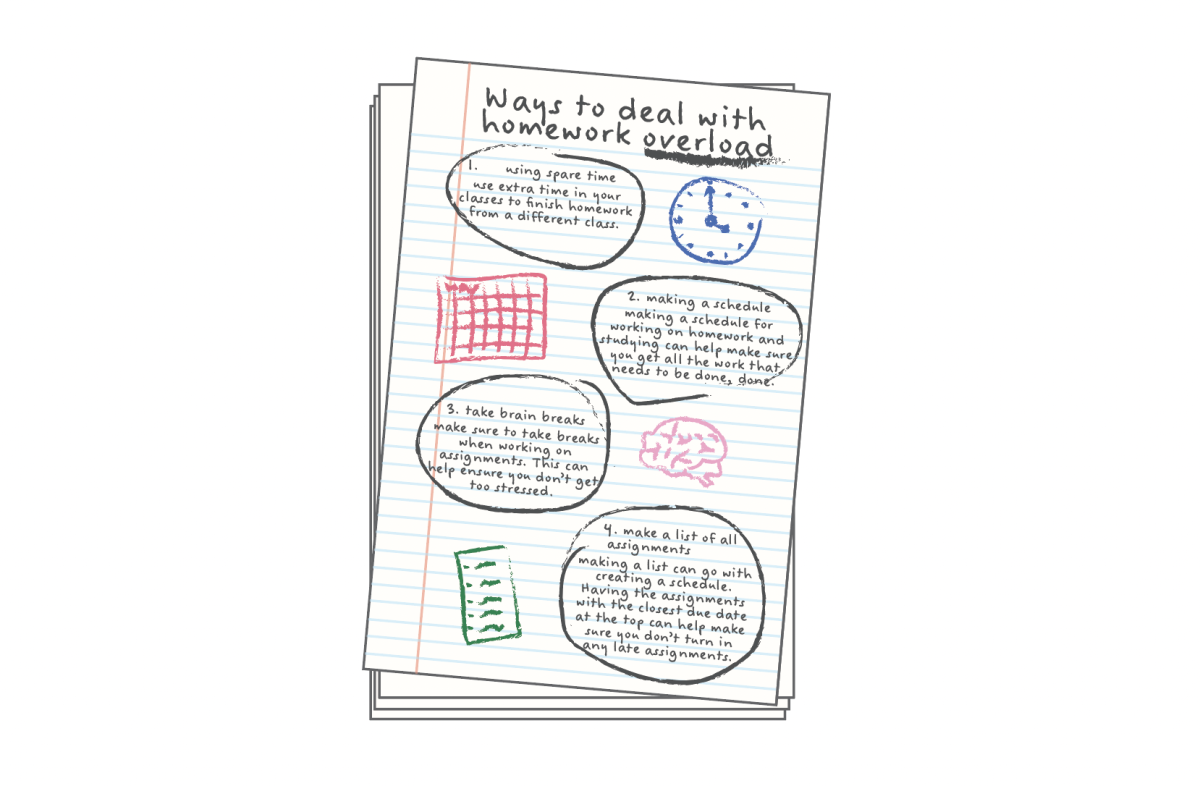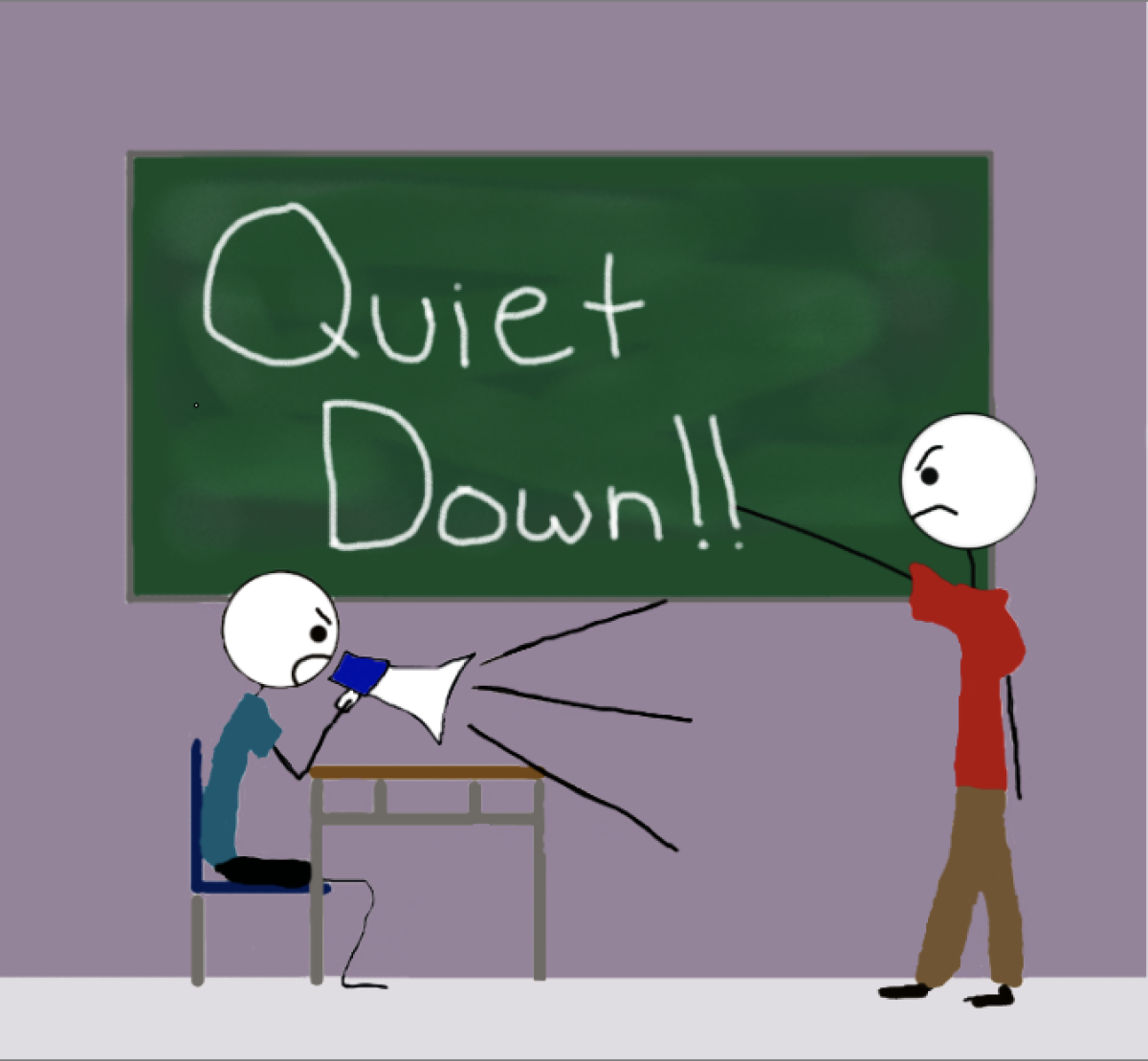Procrastination is an issue that many students struggle with throughout their years in high school. It’s a very widely known issue in America to the point where, according to Productivity Lab, over 85% of high school students procrastinate on assignments for school. Still, many teachers will make students feel bad for procrastinating instead of trying to help them.
Procrastination is a terrible mindset that puts off work and favors doing things you’d rather be doing at the moment. As a procrastinator myself, I believe that teachers should be a bit more understanding if an assignment is turned in late because there might be a reason behind it.
Being a procrastinator isn’t always a choice. I know that when I’m given an assignment, no matter how difficult, I end up wanting to set it aside and either be on my phone or just zone out staring at the screen, Because of that I’ve turned in many assignments late. Whenever I stop myself from procrastinating it’s like I’m fighting my brain and it’s hard to fight my brain if I’m exhausted, especially toward the end of the day or week.
Teachers should be doing things to help students with their procrastinating so that they might be able to work on fixing it. If teachers are making students feel bad about procrastinating when they might not be able to help it, then they won’t try and fix it, and won’t want to go to the teachers for help. Teachers could be more understanding about the issue and provide help along the lines of watching videos on ways to get better at turning work in on time.
There are a lot of reasons why students could be procrastinating and it’s different for each person. For myself, there is the need to get other work for other classes finished as well, since it’s practically impossible for me to do two assignments at the same time. We have eight classes total and there’s a good portion of work that goes with it.
According to McLean Hospital, people will put off a task until they gain enough energy to complete it. That shows that health can also be a contributing factor in procrastination. And if a student isn’t feeling well and just wants to be at home it’ll be twice as hard to get work done.
Some might argue that teachers giving students a strict deadline and chiding them about not turning work in on time is a good way to teach students that that’s the expectation for real life.
I do think that learning to meet deadlines is important, but there might be a different way to go about it. A solution could be that as the school year continues on the teachers could start being more strict with deadlines, giving students time to adjust to turning work in. With teachers’ understanding, students might be able to stop procrastinating little by little.








